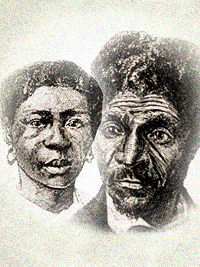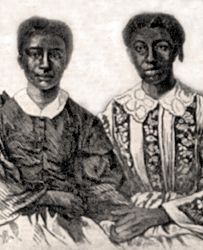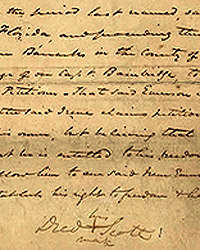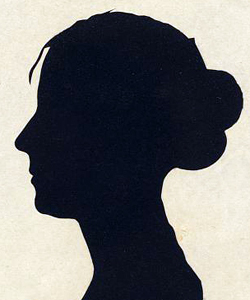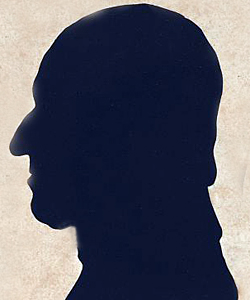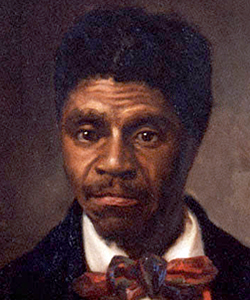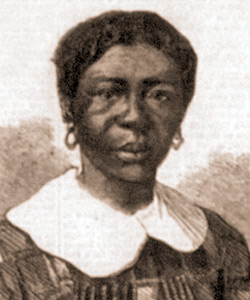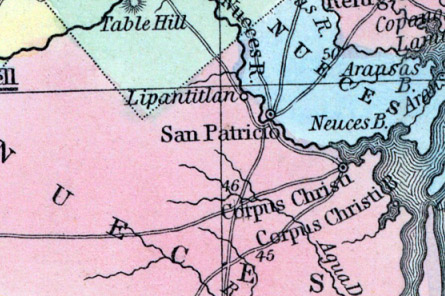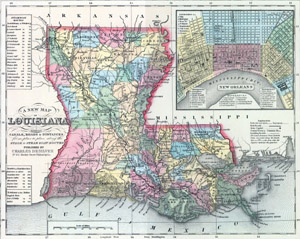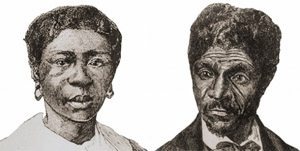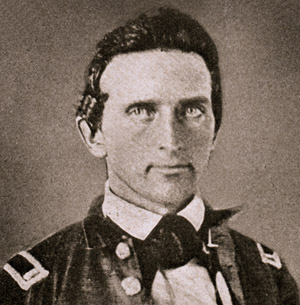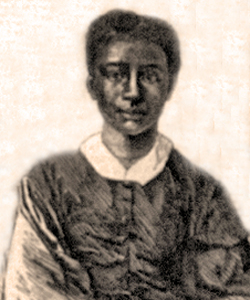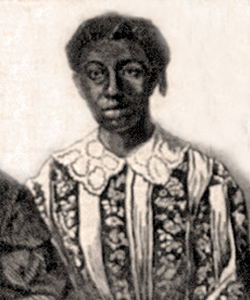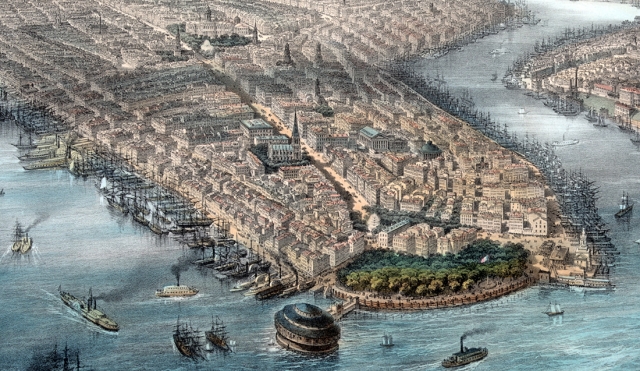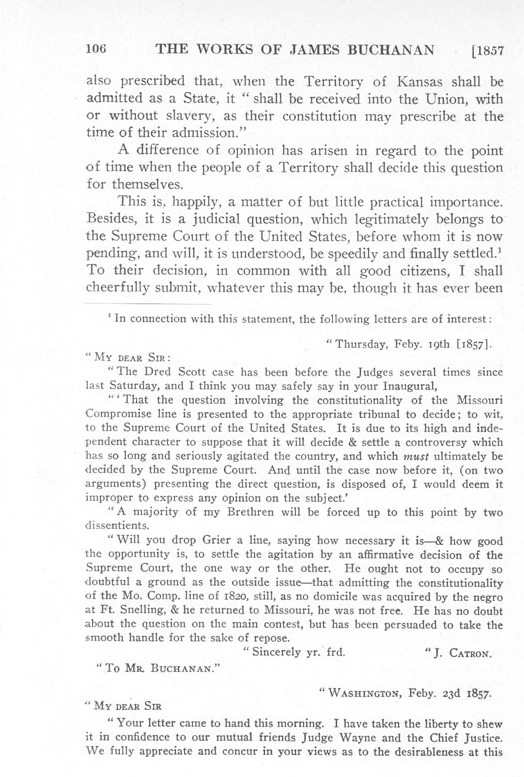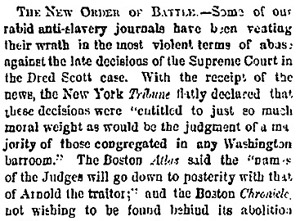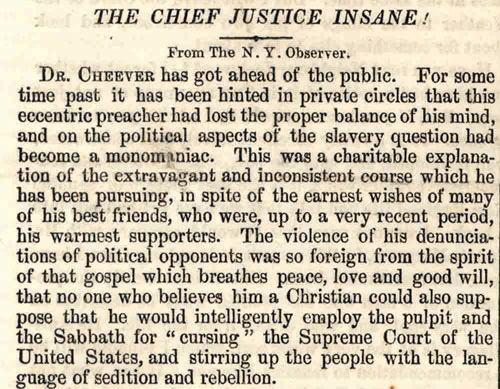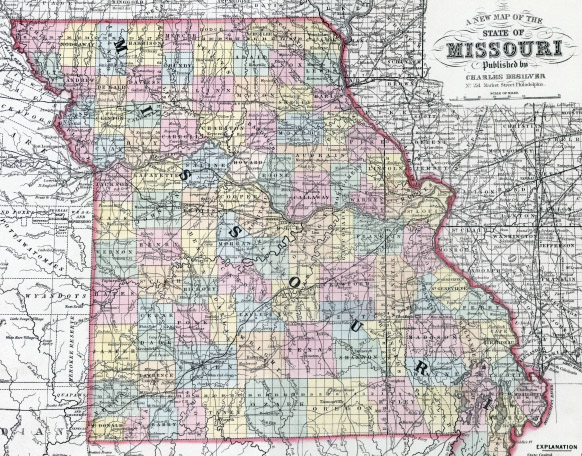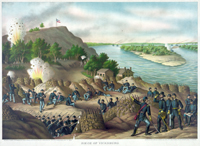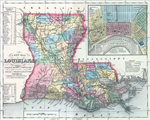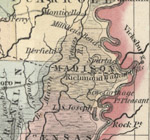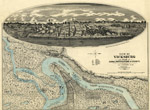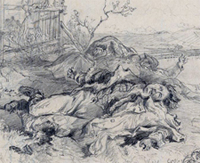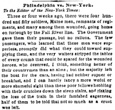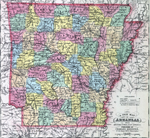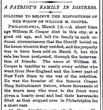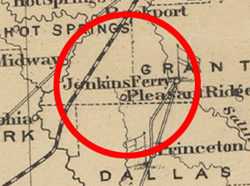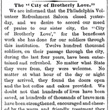After the outbreak of the Mexican War in 1846, Dred Scott went off with the Army of Observation to Louisiana and later Corpus Christi, Texas, while Harriet and their daughters waited for him in St. Louis. Harriet did not sue without Dred, but once he returned from Texas, within days each of them had filed suit separately seeking freedom for themselves and their family. Why did the family sue then? By this time, the relatively benevolent Dr. Emerson, who had left the Scotts alone, had died and now his widow was seeking to control them. Mrs. Emerson refused Dred’s offer to buy his own freedom by working it off. More poignantly, Dred, who by now was considered aged and suffered from tuberculosis, was not worth very much. But his younger wife, Harriet and eight year-old Eliza and little Lizzie were considered valuable human assets.
Mrs. Emerson’s claim to them was tenuous, but then Harriet had not yet established her freedom papers, and the girls’ status depended upon the status of their mother; if Harriet was free, so too were her daughters Eliza and Lizzie. If Harriet was deemed enslaved, however, then Eliza and Lizzie would follow their mother’s designation. Of particular risk to the family was the possibility that eight-year-old Eliza had reached the age when masters sold children separately from the family. In these circumstances, the time had come to file suit to establish the family’s freedom, even if it meant being imprisoned. And so they did. Harriet and Dred each filed separate suits for freedom on April 6, 1846.
The Missouri law was clear and they should have won easily. No suits were filed for the girls, because once their mother was adjudged free, it would be easy to establish their rights. And if the parents needed to bear the brunt of jail, were returned to their master, or hired out, then the girls were spared these indignities for the duration of the case. What the Scotts could not have anticipated were the fires and epidemics that would delay their lawsuit. Neither could they have anticipated that some careless lawyers would fail to make their case. But, more importantly, they could not have foreseen that the Missouri Supreme Court first, and the U.S. Supreme Court later, would change the law in their specific cases when they requested freedom.
